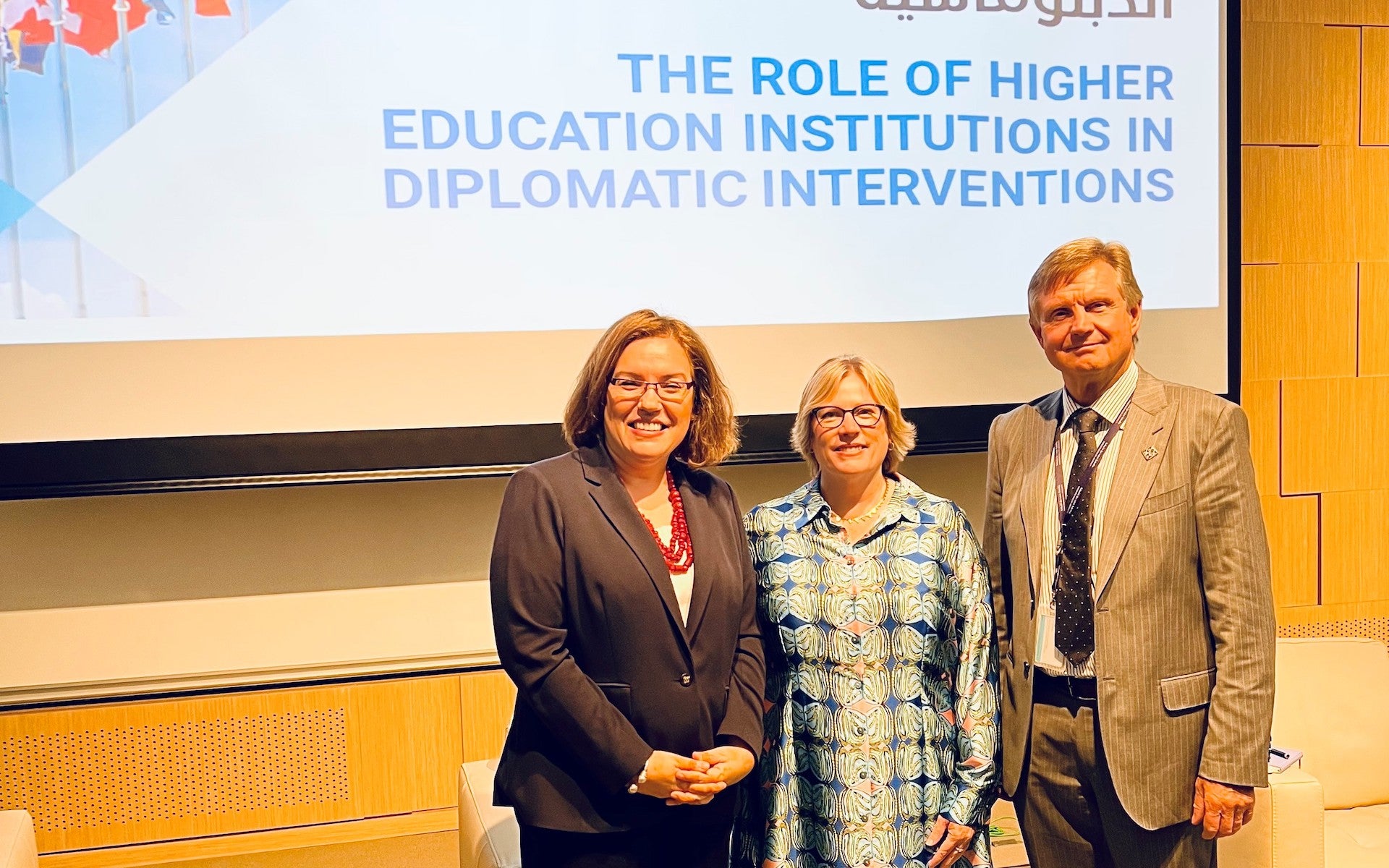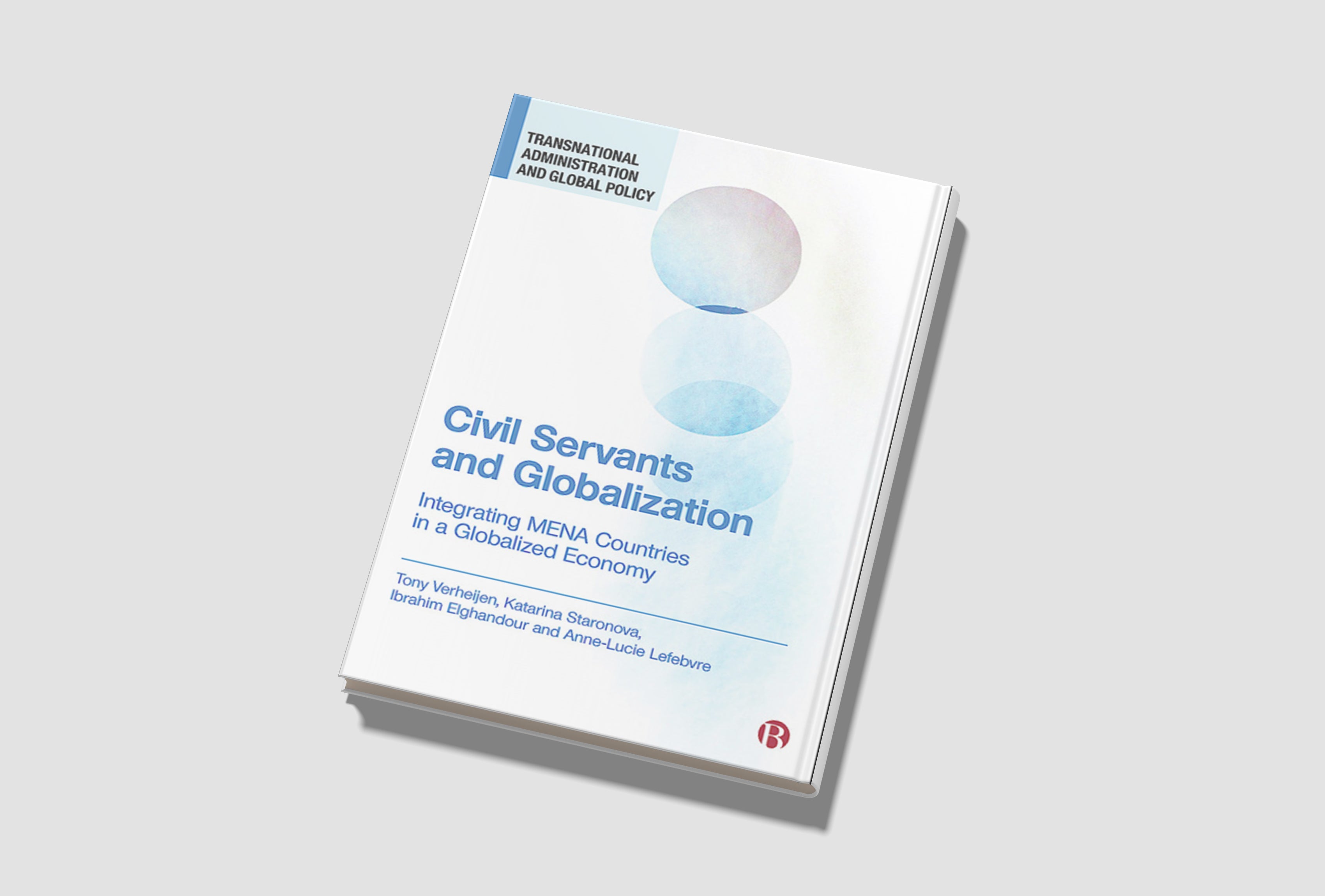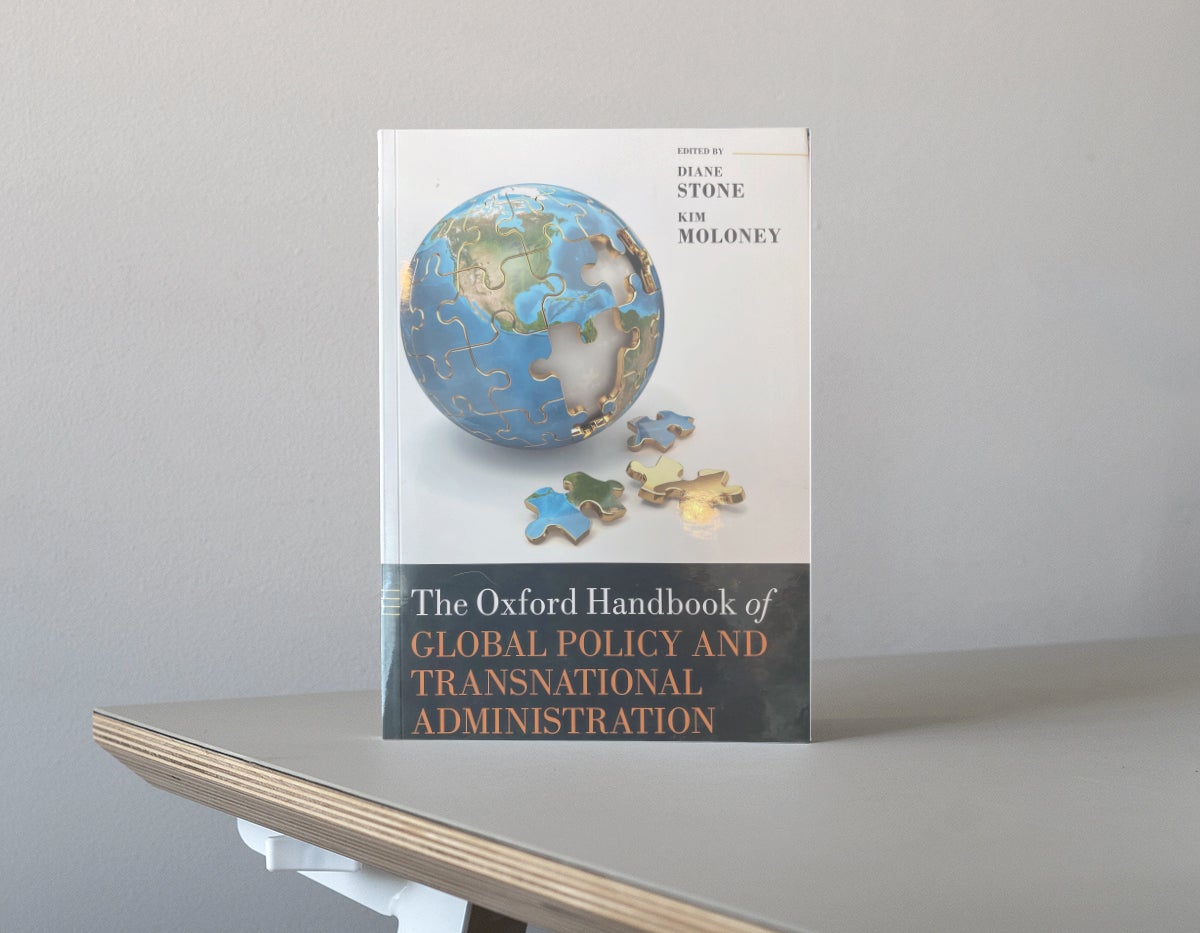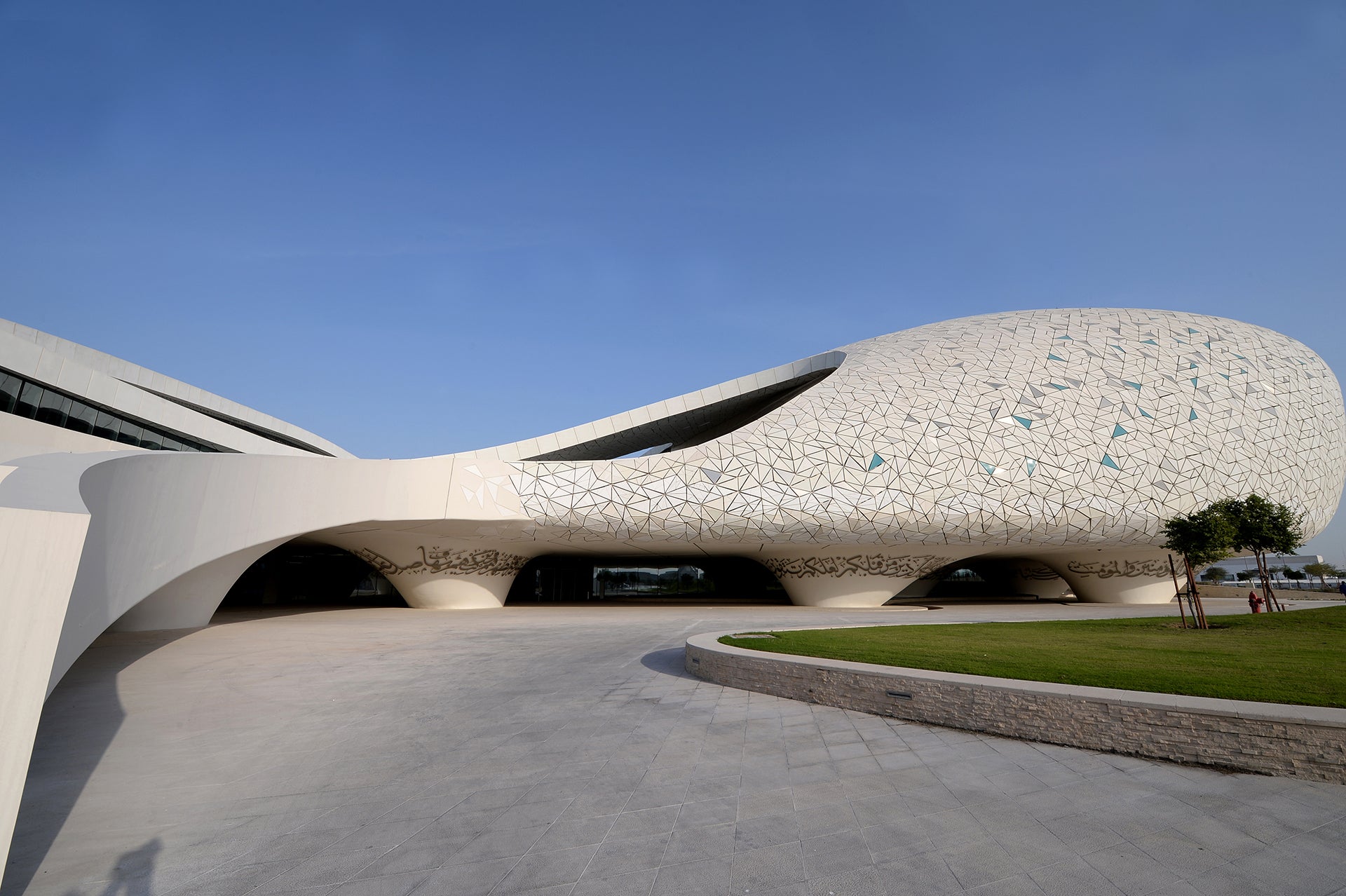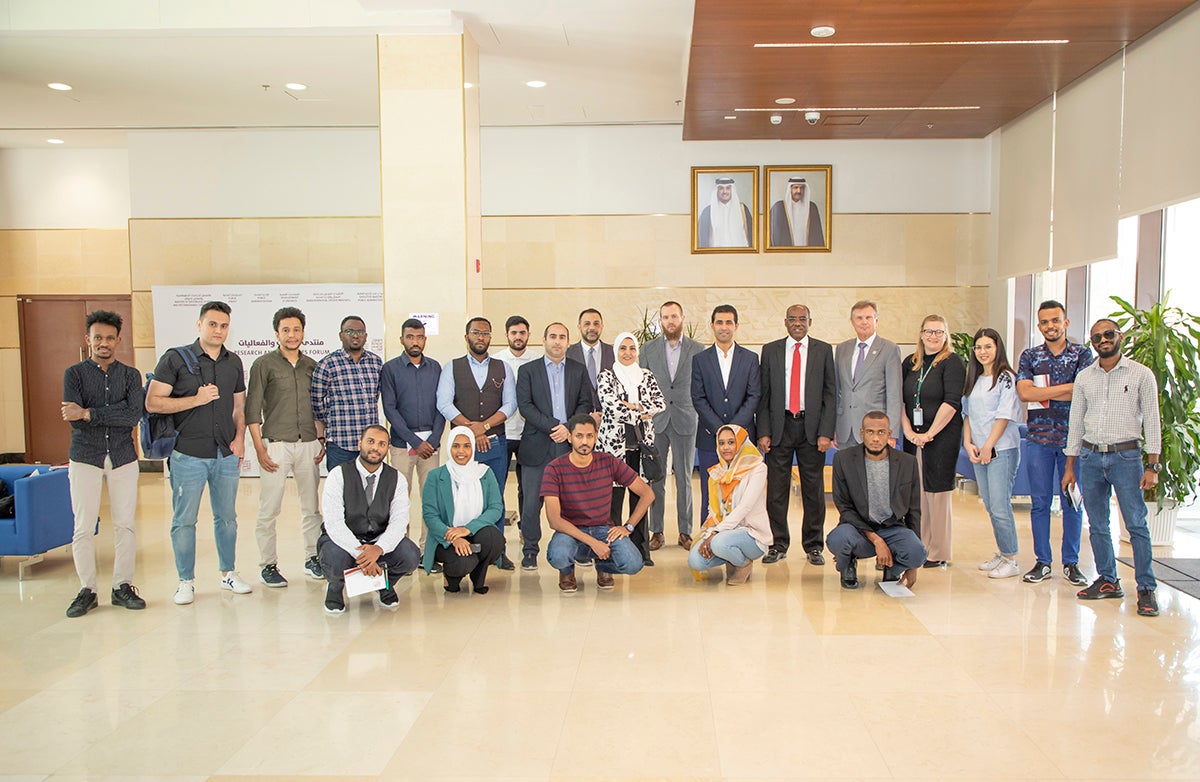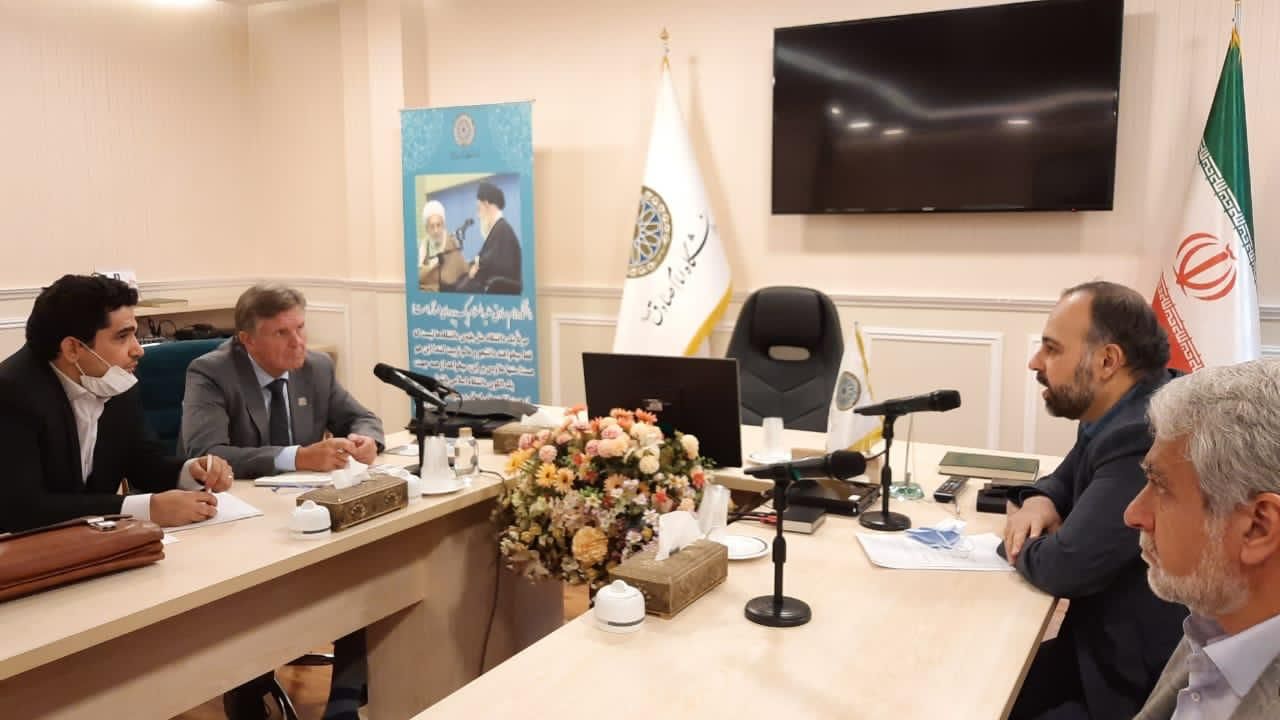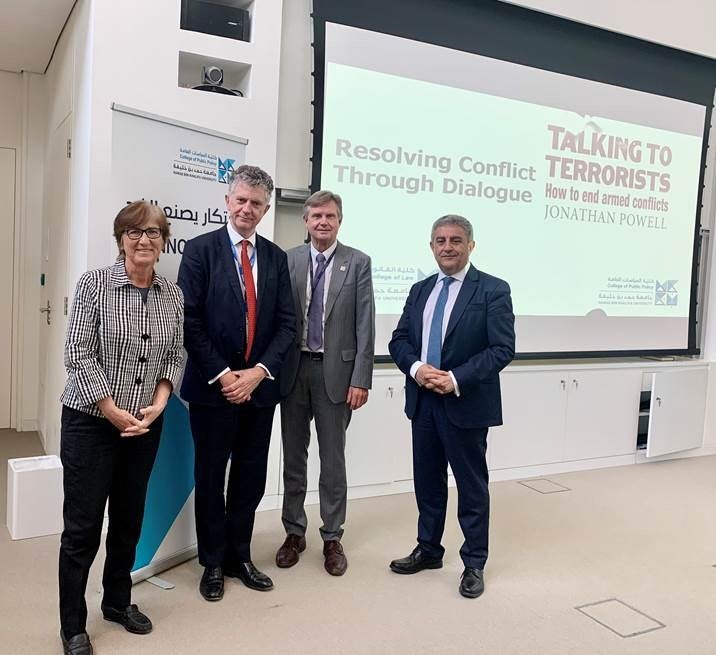Event highlights data and research initiatives, best practice in labor migration models
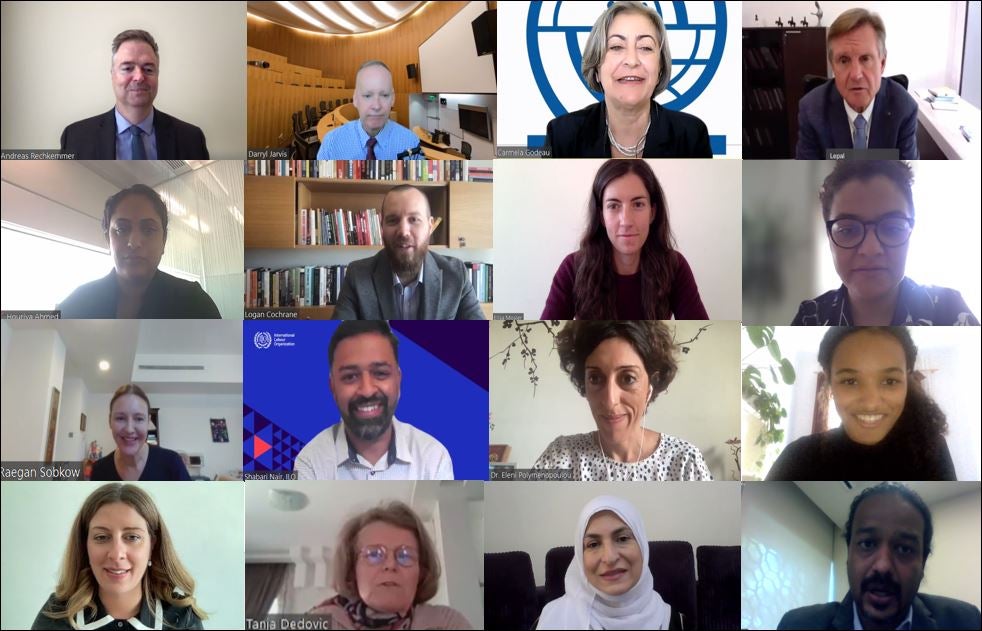
The College of Public Policy (CPP) at Hamad Bin Khalifa University (HBKU), Qatar Foundation (QF), and the International Organization for Migration (IOM) jointly held a roundtable on Good Practices and Lessons Learned in Making Migration Work for All on October 10.
The event brought together academics, experts and policymakers from Qatar and other countries to identify and reflect on good practices and lessons learned in global migration governance and policy-making. The discussions were situated in the context of the 2030 Agenda for Sustainable Development, the Global Compact for Safe, Orderly and Regular Migration (GCM), and the recognition that migration is a powerful driver of development.
CPP was represented by Dr. Darryl S. L. Jarvis, chairing discussions, CPP founding Dean, Dr. Leslie A. Pal, Dr. Andreas Rechhemmer, Professor, and Dr. Logan Cochrane, Associate Professor. Senior IOM officials included Ms. Carmela Godeau, IOM Regional Director for the Middle East and North Africa, and Ms. Iman Ereiqat, IOM Chief of Mission in Qatar. Ms. Godeau welcomed attendees to the roundtable and pointed out that labor migration can bring enormous benefits when governed in a way that reinforces the matching of workers’ skills with market needs, brings innovation, qualifications and expertise, fills the gaps in national labor markets, and contributes to the protection of the rights of migrant workers. On her part, Ms. Iman Ereiqat emphasized the importance of the partnership between IOM Qatar and HBKU, a member of QF, and the importance of these kinds of discussions in bringing lessons learned and best practices from across the world.
The first session explored “The Importance of Data and Research in Supporting Evidence-Based Policies”, with presentations by Dr. Pal, co-champion of QF’s flagship initiative, the Qatar Human Capital Manara, to understand the future of work and identifying future skills-based training. Data disaggregation and the 2030 agenda, as well as the Arab Regional Migration Situational Report 2020, were also discussed.
The second session highlighted “Best Practices and Lessons Learned From Labor Migration Models From Around the World”, and how countries have adapted their policies to ensure respect and protection for migrant workers’ rights. The session featured presentations by Ms. Raegan Sobkow, from the Canadian Embassy, on Canada’s Points-Based System; Mr. Shabari Nair, ILO South Asia, on “Labor Migration to the Middle East”; Dr. Eleni Polymenopoulou, College of Law, HBKU, on “Migrants and Obligations of Non-Discrimination and International Human Rights Perspectives”; as well as a presentation by Dr. Logan Cochrane on “Ethiopia-Qatar Bilateral Agreements Relating to Labor Migration”.
During the third session, moderated by Ms. Roula Hamati, IOM, on “Fostering Skilled Migration and Investing in Skills Development, Matching and Recognition”, Dr. Uday Rosario, GU-Q; Ms. Sarah Barasa, IOM consultant; and Ms. Tanja Dedovic, IOM Regional Office in Cairo, discussed the importance of skills development and specialization for high and low skill workers, and harmonization through skills mobility partnerships.
Commenting after the roundtable, Dean Pal said: “We express our appreciation to IOM for partnering with CPP on this event, and bringing the appropriate role players into this conversation. We thank our speakers for their compelling contributions, and look forward to taking these discussions forward, as part of CPP’s commitment to supporting and contributing to effective policy development. While migration policies vary from country to country, and region to region, there is unison that work must continue to enhance the links between sustainable development and migration. This roundtable was valuable in bringing to the fore the growing role of data in evidence-based migration policies, and other important considerations for migration governance and policy development.”
For more on the work of the College of Public Policy, please visit cpp.hbku.edu.qa




